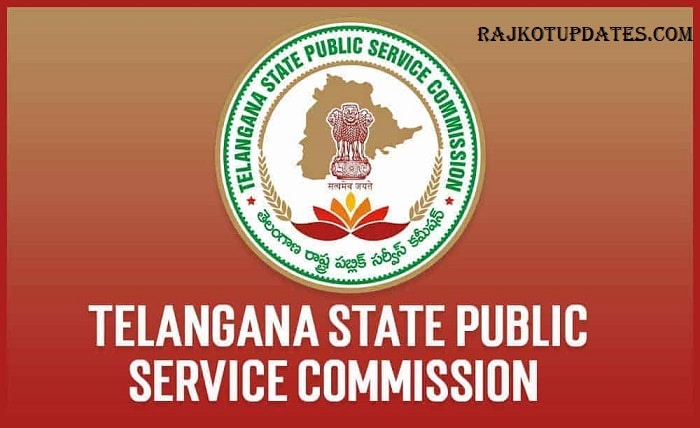Telangana State Public Service Commission: A Guide for Aspirants

The Telangana State Public Service Commission (TSPSC) is the constitutional body that conducts various examinations for the recruitment of civil servants in the state of Telangana. The TSPSC was established in 2014, after the bifurcation of Andhra Pradesh, and is headquartered in Hyderabad. The TSPSC is responsible for selecting the best candidates for various posts under the state government, such as Group I, Group II, Group III, Group IV, Teachers, Police, Forest, Health, Revenue, etc. In this blog post, we will provide you with a comprehensive guide for the aspirants of the TSPSC exams, such as the eligibility criteria, exam pattern, syllabus, application process, admit card, result, cut-off, and preparation tips. Let’s begin!
Eligibility Criteria for TSPSC Exams
The eligibility criteria for the TSPSC exams vary depending on the post and the department. However, some of the common eligibility criteria are:
- Nationality: The candidate must be a citizen of India and a resident of Telangana.
- Age Limit: The candidate must be between 18 to 44 years of age as on the date of notification. However, there are relaxations in the upper age limit for the candidates belonging to SC, ST, BC, PwD, Ex-servicemen, and other categories as per the government rules.
- Educational Qualification: The candidate must have passed the minimum educational qualification required for the post from a recognized board or university. The educational qualification may range from Class 10 to Post Graduation, depending on the post and the department.
- Physical Standards: The candidate must meet the physical standards prescribed by the TSPSC for the posts that require physical fitness and endurance, such as Police, Forest, etc. The physical standards may include height, weight, chest, eyesight, etc.
Exam Pattern for TSPSC Exams
The exam pattern for the TSPSC exams also varies depending on the post and the department. However, the general exam pattern consists of the following stages:
- Preliminary Examination: This is an objective type test of 150 marks and 150 minutes duration. The test comprises of two papers: Paper I (General Studies and General Abilities) and Paper II (Subject Specific). The test is qualifying in nature and the candidates have to score at least 40% marks (35% for BC and 30% for SC/ST) to qualify for the next stage.
- Main Examination: This is a descriptive type test of 600 marks and 900 minutes duration. The test comprises of six papers: Paper I (General English), Paper II (General Essay), Paper III to Paper VI (Subject Specific). The test is merit-based and the candidates have to score at least 40% marks (35% for BC and 30% for SC/ST) in each paper to qualify for the next stage.
- Interview: This is a personality test of 100 marks. The test is conducted by a board of experts and assesses the candidates’ suitability for the post. The candidates have to produce their original documents and certificates at the time of the interview.
The final merit list of the candidates is prepared based on the marks obtained in the main examination and the interview. The candidates are allotted to the posts and the districts as per their rank, preference, and availability of vacancies.
Syllabus for TSPSC Exams
The syllabus for the TSPSC exams covers the topics and sub-topics related to the post and the department. The syllabus is divided into two parts: General Studies and General Abilities, and Subject Specific. The syllabus for the General Studies and General Abilities part is common for all the posts and includes the following topics:
- Current Affairs: National and International
- History: India and Telangana
- Geography: India and Telangana
- Polity: India and Telangana
- Economy: India and Telangana
- Science and Technology
- Environment and Ecology
- Culture and Heritage: India and Telangana
- Society and Social Issues: India and Telangana
- Disaster Management
- Ethics and Values
- Logical Reasoning
- Analytical Ability
- Data Interpretation
- Basic English
The syllabus for the Subject Specific part is different for each post and department and includes the topics related to the relevant subject or discipline. The candidates can check the detailed syllabus for each post and department on the official website of the TSPSC.
Application Process for TSPSC Exams
The application process for the TSPSC exams is online and the candidates have to fill and submit the online application form on the official website of the TSPSC. The application process for the TSPSC exams is as follows:
- Visit the official website of the TSPSC and click on the link “Apply Online” on the homepage.
- Register yourself by providing your name, email id, mobile number, and password. You will receive a TSPSC ID and password on your email id and mobile number.
- Login with your TSPSC ID and password and fill the online application form by providing your personal details, educational details, post preference, etc.
- Upload your scanned photograph, signature, and documents as per the specifications given in the notification.
- Pay the application fee of Rs. 200/- (for all candidates) and Rs. 120/- (for General/BC candidates) through online mode using debit card, credit card, net banking, or TS Online centers.
- Submit the online application form and take a printout of the confirmation page for future reference.
Admit Card for TSPSC Exams
The admit card for the TSPSC exams is issued by the TSPSC on its official website 15 days before the date of the exam. The admit card contains the details of the candidate, such as name, roll number, exam center, exam date, exam time, etc. The candidates have to download and print their admit card from the website and carry it along with a valid photo identity proof to the exam center. The candidates who fail to produce their admit card or identity proof will not be allowed to appear for the exam.
Result for TSPSC Exams
The result for the TSPSC exams is declared by the TSPSC on its official website after the completion of each stage of the exam. The result contains the marks and the status (qualified/not qualified) of the candidates who appeared for the exam. The candidates can check their result by entering their TSPSC ID and date of birth on the website. The candidates who qualify the preliminary examination are eligible for the main examination. The candidates who qualify the main examination are eligible for the interview. The candidates who qualify the interview are eligible for the final selection.
Cut-off for TSPSC Exams
The cut-off for the TSPSC exams is the minimum marks required to qualify each stage of the exam. The cut-off is decided by the TSPSC based on various factors, such as the number of vacancies, the number of candidates, the difficulty level of the exam, the reservation policy, etc. The cut-off is different for each post, department, category, and district. The candidates who score equal to or more than the cut-off marks are considered qualified for the next stage of the exam. The candidates can check the cut-off marks for each stage of the exam on the official website of the TSPSC.
Preparation Tips for TSPSC Exams
To prepare for the TSPSC exams, the candidates need to follow some tips and strategies. Here are some of them:
- Know the syllabus and pattern of the exam. The candidates should be familiar with the syllabus and pattern of the exam they are applying for. They should know the topics, sub-topics, marks, duration, number of questions, type of questions, negative marking, etc. of the exam. They should also refer to the previous year question papers and answer keys to get an idea of the difficulty level and trend of the exam.
- Make a study plan and follow it. The candidates should make a realistic and achievable study plan that covers all the topics of the syllabus and allocates sufficient time for revision and practice. They should follow the study plan diligently and monitor their progress and performance regularly. They should also make short notes and flashcards for quick revision and recall.
- Study the concepts and facts thoroughly. The candidates should study the concepts and facts related to the topics of the syllabus from reliable and authentic sources, such as textbooks, reference books, online courses, etc. They should understand the concepts and facts clearly and logically, and not rely on rote memorization. They should also revise the concepts and facts frequently and update their knowledge with the latest information and developments.
- Practice the questions and mock tests rigorously. The candidates should practice the questions and mock tests of the exam from various sources, such as sample papers, previous year papers, online test series, etc. They should practice the questions and mock tests in a time-bound and exam-like manner, and analyze their performance and mistakes. They should also improve their speed, accuracy, and time management skills by practicing the questions and mock tests regularly.
- Prepare for the interview confidently. The candidates who are shortlisted for the interview should prepare for it confidently and sincerely. They should brush up their general knowledge, current affairs, and subject knowledge. They should also practice mock interviews and group discussions with their friends or mentors. They should also dress formally and behave politely and professionally during the interview.
Conclusion
The TSPSC exams are a great opportunity for the candidates who are aspiring to join the civil services in the state of Telangana. The TSPSC exams are conducted by the Telangana State Public Service Commission (TSPSC), which is the constitutional body that selects the best candidates for various posts under the state government. The TSPSC exams are based on the syllabus, pattern, and eligibility criteria prescribed by the TSPSC for each post and department. The TSPSC exams consist of various stages, such as preliminary examination, main examination, interview, etc. The TSPSC exams are highly competitive and challenging, and require a lot of preparation and hard work. The candidates who qualify the TSPSC exams are appointed to the posts and the districts as per their rank, preference, and availability of vacancies.




